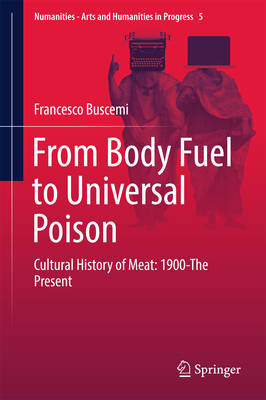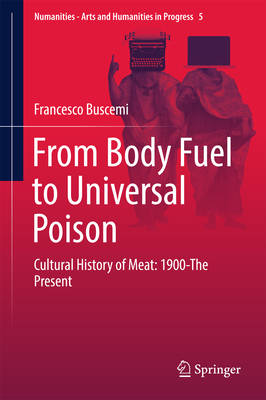
Je cadeautjes zeker op tijd in huis hebben voor de feestdagen? Kom langs in onze winkels en vind het perfecte geschenk!
- Afhalen na 1 uur in een winkel met voorraad
- Gratis thuislevering in België vanaf € 30
- Ruim aanbod met 7 miljoen producten
Je cadeautjes zeker op tijd in huis hebben voor de feestdagen? Kom langs in onze winkels en vind het perfecte geschenk!
- Afhalen na 1 uur in een winkel met voorraad
- Gratis thuislevering in België vanaf € 30
- Ruim aanbod met 7 miljoen producten
Zoeken
€ 110,45
+ 220 punten
Uitvoering
Omschrijving
This book explores our changing relationship with meat as food. Half storytelling and half historic work, it analyzes the way in which humans have dealt with the idea of eating animals in the Western world, from 1900 to the present. The story part of the book follows the rise and fall of meat, and illustrates how this type of food has become a problem in a more emotional way. The historical component informs and offers readers key data. The author draws on theories of circular societies, smart cities and smart countries to explain how and why forms of meat production that were common in the past have since all but disappeared. Both components, however, explain why meat has been important and why it has now become a problem. In tracing the fall of meat, the author identifies a host of dilemmas. These include fossil energy, pollution, illnesses caused by eating meat, factory farming, and processed foods. Lastly, the book offers a possible solution. The answer focuses on new forms of meat obtained without killing animals and in a sense resembles renewable energy. Overall, this unique cultural history offers revealing insights into how meat affects social relations, interpersonal relationships, and humanity as a whole.
Specificaties
Betrokkenen
- Auteur(s):
- Uitgeverij:
Inhoud
- Aantal bladzijden:
- 154
- Taal:
- Engels
- Reeks:
- Reeksnummer:
- nr. 5
Eigenschappen
- Productcode (EAN):
- 9783319720852
- Verschijningsdatum:
- 4/01/2018
- Uitvoering:
- Hardcover
- Formaat:
- Genaaid
- Afmetingen:
- 181 mm x 241 mm
- Gewicht:
- 421 g

Alleen bij Standaard Boekhandel
+ 220 punten op je klantenkaart van Standaard Boekhandel
Beoordelingen
We publiceren alleen reviews die voldoen aan de voorwaarden voor reviews. Bekijk onze voorwaarden voor reviews.









